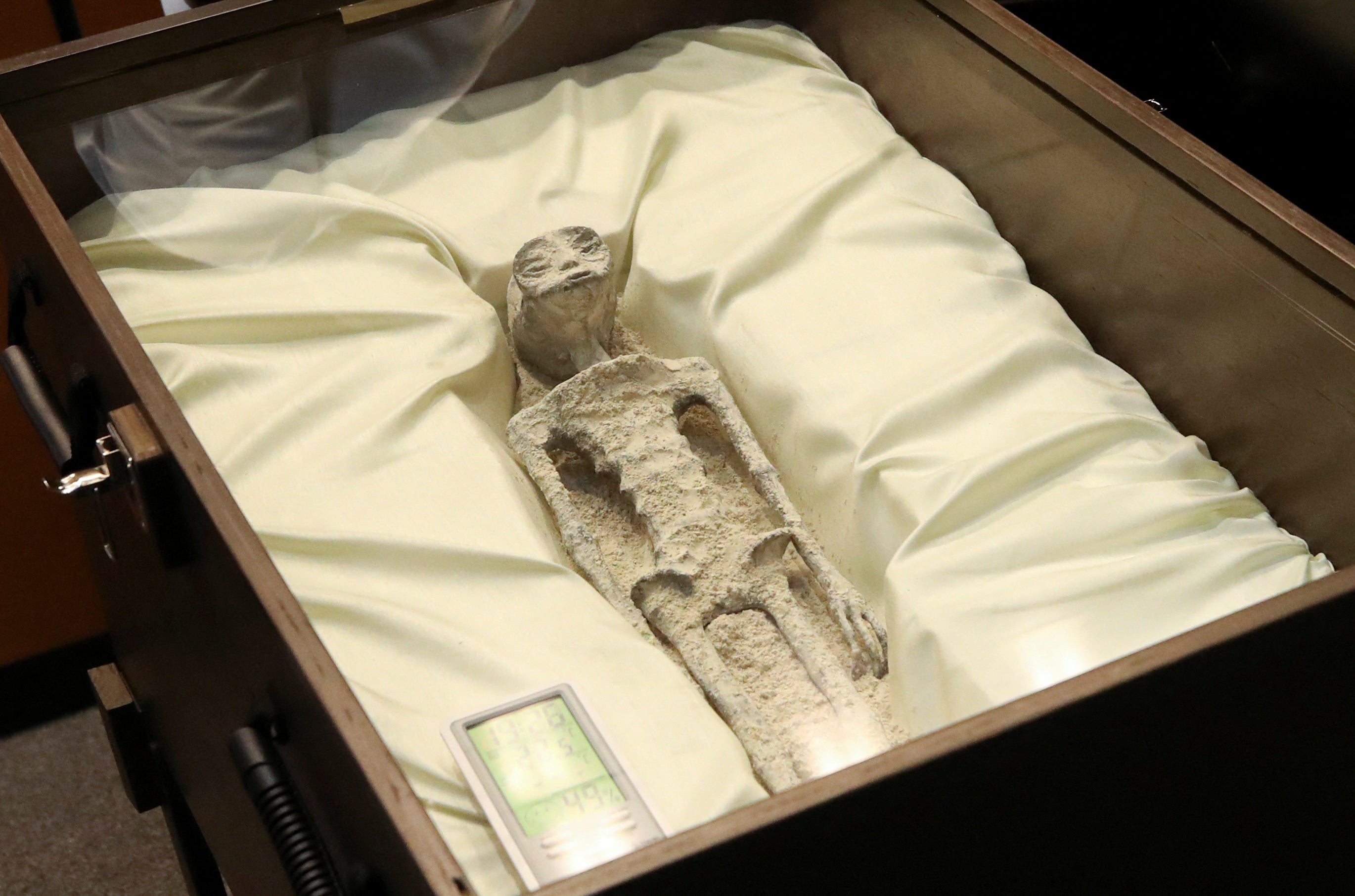Professor Brian Cox has say on ‘alien corpses’ presented to Mexico’s parliament
Celebrity physicist suggests definitive answer could be found ‘within 10 minutes’
Professor Brian Cox has offered his initial verdict on the mummified corpses presented to Mexico’s parliament as supposed evidence of “non-human” alien beings.
The two corpses – supposedly 1,000 years old and retrieved from Cusco, a city in the Peruvian Andes with extensive Inca ruins – were brought before politicians in Mexico City on Wednesday.
The event was led by Jamie Maussan, a journalist and “UFOlogist” known for making similar debunked claims in recent years, who testified under oath on Wednesday that the two specimens supposedly found in algae mines in 2017 were not part of “our terrestrial evolution”.
In 2017, Maussan made similar claims in Peru, and a report by the country’s prosecutor’s office found that the bodies were actually “recently manufactured dolls, which have been covered with a mixture of paper and synthetic glue to simulate the presence of skin.”
Mr Maussan claimed that X-rays had shown “eggs” inside one of the bodies, both of which were claimed to contain implant of rare metals such as Osmium and whose DNA is supposedly 30 per cent “unknown”.
These findings, claimed to have been carried out at the Autonomous National University of Mexico, do not appear to have been peer-reviewed.
While the session in Mexico’s chamber of deputies has sparked excitement among some online enthusiasts, Prof Cox was somewhat more sceptical – as others sought to distance themselves from the event.
“Obviously I’ve been asked about this story,” the University of Manchester particle physicist wrote on Twitter/X.
“My immediate response – they are way too humanoid. It’s very unlikely that an intelligent species that evolved on another planet would look like us.
“Secondly – send a sample off to [genetic testing firm] 23andme – let alone the University down the road – and they’ll tell you within 10 minutes.”
Wednesday’s session was also attended by former US Navy pilot Ryan Graves, who earlier this year testified to the US Congress about the threat unidentified aerial phenomena posed to US national security.
However, Mr Graves wrote on Twitter/X after Wednesday’s event that he had accepted his invite “hoping to keep up the momentum of government interest in pilot experiences with UAP” – but called the event an “unsubstantiated stunt” representing “a huge step backwards for this issue”.
Likewise, the National Autonomous University of Mexico also released a statement saying its researchers had never examined the actual specimens, but had merely carried out carbon testing on skin samples provided by a client back in 2017.

Their carbon-dating was “only intended to determine the age of the sample brought by each user and in no case do we make conclusions about the origin of said samples”, the university said.
Mr Maussan has previously been associated with claims of “non-human” discoveries that have later been debunked, including five mummies found in Peru in 2017 which were later shown to be human children.
He was reported as saying on Wednesday: “Whether they are aliens or not, we don't know, but they were intelligent and they lived with us. They should rewrite history ... We are not alone in this vast universe, we should embrace this reality.”
Previous claims of “ancient aliens” being partly responsible for Andean achievements – thereby serving to undermine them – have been a source of anger among some experts.
Join our commenting forum
Join thought-provoking conversations, follow other Independent readers and see their replies
Comments



Bookmark popover
Removed from bookmarks